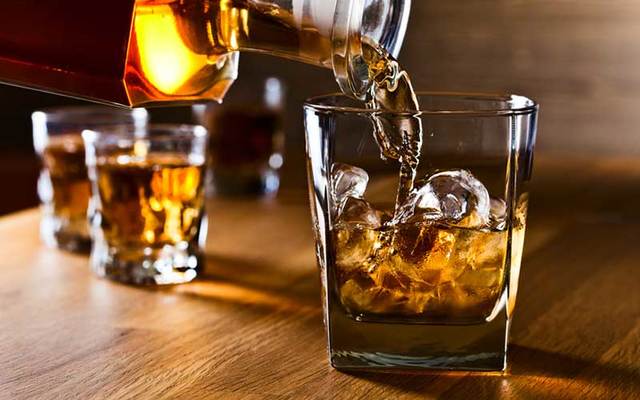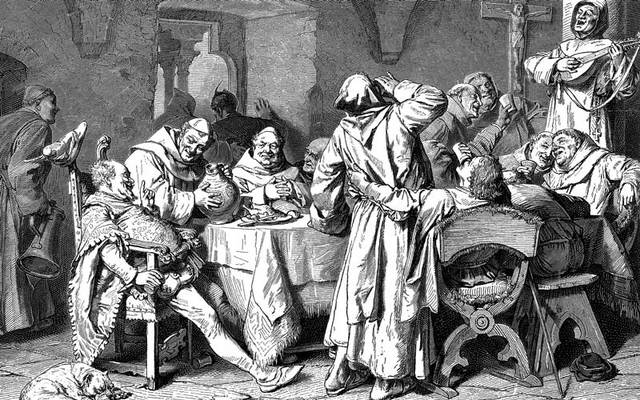Scholars believe whiskey was brought to Ireland by Christian monks sometime between the 8th and 11th centuries.
Monks from Celtic lands would often make long pilgrimages to the Mediterranean and Middle East regions, and it is believed that it was there they learned the art of distilling.
The earliest known records of the distillation of alcohol, which date back to the 13th century, belonged to a Christian monk, Men’s Journal reported.
"The first use of distilled spirits is likely to have been in religious rituals," Charles MacLean, an expert in Scotch whiskey, wrote in the foreword to the essay collection “Whiskey and Philosophy: A Small Batch of Spirited Ideas Opens in New Window.”
Initially, the monks would have made wine, but while wine worked well for the warm regions of the Mediterranean, in the cold northern regions another method for creating spirits needed to be found, Aleteia reported.

Credit: iStock/Getty Images
This method, which would allow the creation of beverages with higher concentrations of alcohol, may have been discovered by the monk Ramon Llull, according to Dane Huckelbridge, the author of "Bourbon: A History of the American Spirit."
Llull, a former musician who became a monk after having visions of Christ, had a strong interest in alchemy. Distillation was known to alchemists long before medieval monks, but it is believed Llull was the first to distill alcohol.
Llull was based in Spain, but it is very likely that the new process he discovered was shared with monks from other orders across Europe. In countries like France, Germany, and Belgium, this new information was used to make better beer, but in Ireland and Scotland, monks made whiskey.
Because these Celtic monks wrote in Latin, early whiskey became known as 'Aqua Vitae' or water of life. According to Huckelbridge, the distinction between things that made one feel good and things that were healthy for you didn’t exist. "It really was seen as something healing and miraculous, a true 'water of life.'"
In the Celtic language, it was called “uisge beatha,” from which the word whiskey is derived.
The manufacturing of whiskey remained in the hands of monks until the mid-16th century when King Henry VIII disbanded all religious communities in England, Wales, and Ireland.
Some of the monks would go on to support themselves in secular life by starting their own distilleries.
* Originally published in 2019. Updated in 2023.




Comments